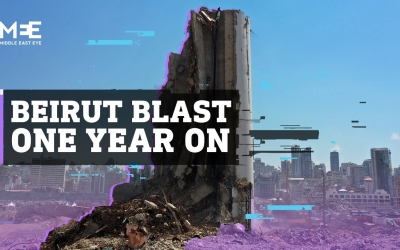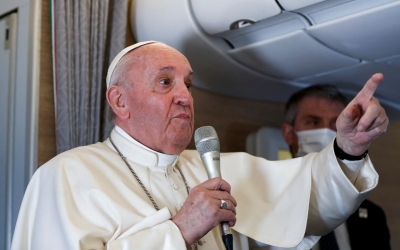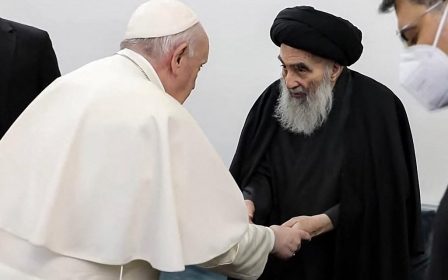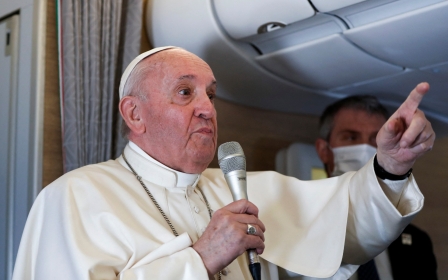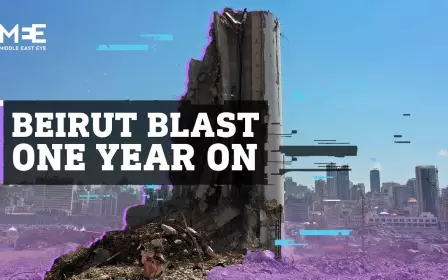Pope Francis announces 'great desire' to visit Lebanon
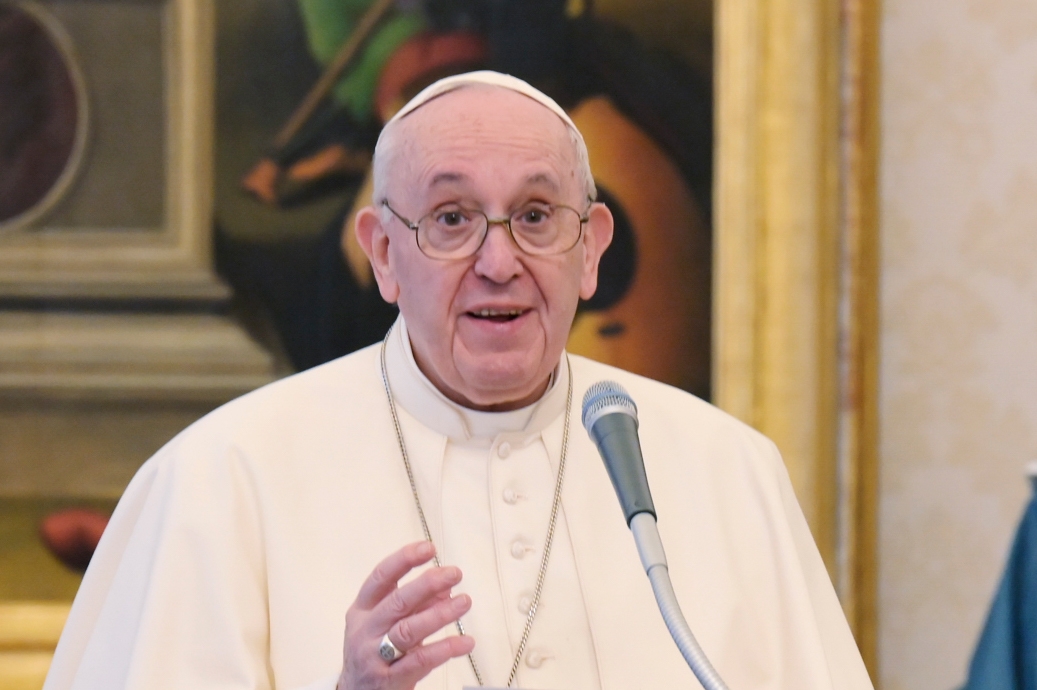
Pope Francis, speaking on the first anniversary of the Beirut port explosion, said he had a "great" desire to visit Lebanon.
The 84-year-old pontiff, who looked fit at his first general audience since undergoing intestinal surgery a month ago, also wished success for French President Emmanuel Macron's efforts to raise more than $350m in aid for Lebanon at a donors' conference and sent yet another warning to its squabbling political class.
Speaking in the Vatican's audience hall, the pope said many people in Lebanon, which is mired in a financial depression and faces its worst social crisis in 30 years, had lost "even the illusion of living".
Donors should help Lebanon "on a path of resurrection," he said.
The pope also called for "concrete gestures, not just words", as many who had lost their homes and jobs were tired and deluded.
"Dear Lebanese, my desire to come to visit you is great," he said.
"And I will not tire of praying for you so that Lebanon returns to being a message of brotherhood, a message of peace for all of the Middle East."
The Vatican's Foreign Minister, Archbishop Paul Gallagher, said last month the visit could take place late this year or early next year. He suggested the pope could go even without a government in place.
Refugee crisis
Following his historic tour of Iraq, the pope had said in March that his next trip would be to Lebanon.
At the time, Francis said it was important to visit the country since it was hosting a huge number of refugees while gripped by the spiraling economic crisis.
About one million refugees, the vast majority sheltering from the war in neighbouring Syria, live among four million Lebanese, the highest number of refugees per capita of any country in the world.
Meanwhile, its economy and currency are in free fall.
The crisis was only been exacerbated by the 4 August 2020 explosion at Beirut port, where a rotting stash of highly explosive ammonium nitrate ignited, killing more than 200 people, injuring thousands, and leaving much of the capital in ruins.
So far, no one has been held accountable for the blast.
Middle East Eye delivers independent and unrivalled coverage and analysis of the Middle East, North Africa and beyond. To learn more about republishing this content and the associated fees, please fill out this form. More about MEE can be found here.


